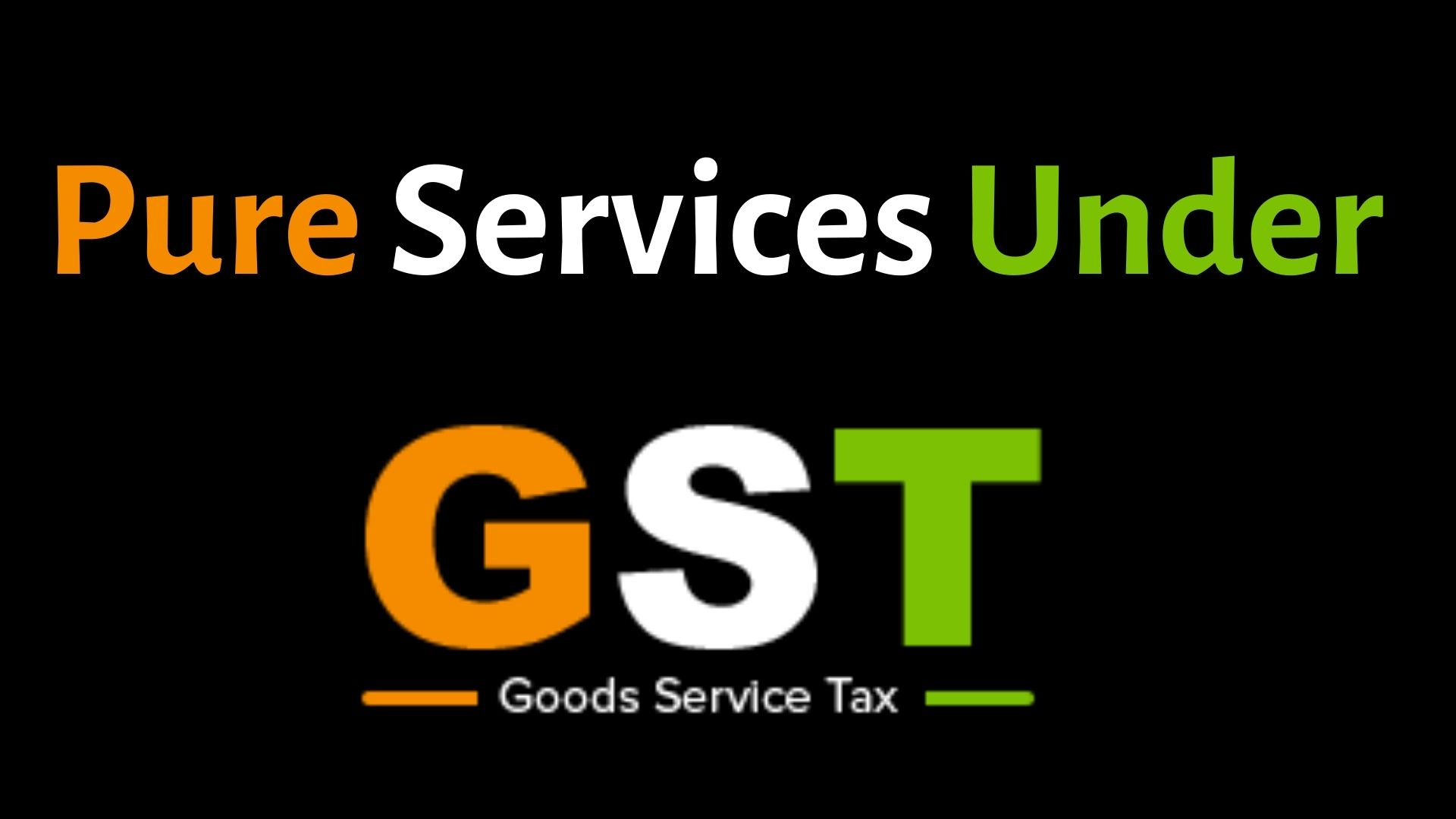The GST Act
defines Pure Services as supplies that are not a supply of goods or a composite
supply of goods and a service. Some examples of pure services include
consulting engineer or advisory services, manpower supply, security guards, and
street-light replacement by a governmental body. The GST Act does not currently
define what a pure service is, but it is assumed that all services that are
categorized as services fall within this category.
Pure services
include all activity involving money or other securities, if it is in relation
to a function entrusted to a municipality under Article 243W of the
Constitution. This category of services also includes services rendered by a
'Governmental Authority', a board or authority created by an Act of Parliament
and containing at least 90% participation or equity in a government entity. The
purpose of the supply must be to carry out the constitutional functions of the
recipient.
For a Pure
Service to qualify under GST, the activity must be performed in the context of
a function entrusted to a municipality under Article 243W of the Constitution.
To be eligible to be exempt from the tax, a 'Governmental Authority' is defined
as an authority or board established by the Government with a minimum of 90%
equity, control, and participation. It is also important to note that a
'Governmental Authority' is any entity whose main purpose is to fulfill a
constitutional function.
Exemption On
Pure Services To Government
The Excise Duty
on services is applicable to a number of industries, but is generally triggered
when a business provides a pure service to a government entity. The term 'pure
service' refers to activity in relation to a function entrusted to a
municipality or other governmental authority under Article 243W of the
Constitution. For example, a video production company might be engaged in
producing videos and pictures for various government entities. But its
activities are not directly related to the functions entrusted to local bodies
such as municipalities and panchayats. For these types of services, a company
would be subject to the 18% tax rate.
The Exemption on
pure services to government is applicable to supplies that are either taxable
or exempt. In this case, the taxpayer's input tax credit will be reduced by the
amount of income tax paid on that product. The total cost of this tax credit
will be taken into account when calculating the output tax credit on a pure
service. The cost of input tax credit is reversed for an output exempt supply.
Providing pure
services to a government is exempted from the CGST on goods and composite
supplies. This tax break is available for a wide range of goods and services,
including the supply of manpower, security, and infrastructure. However, there
are certain exceptions. For example, a company providing a service contract may
provide construction or maintenance services to the National Health Programme
(NHP). These activities will fall under the purview of the government's Article
243W, and can therefore be exempted from the tax.
Functions Entrusted Under Article 243g And 243w Of
The Constitution-
The Panchayat or
the Municipality is the entrusted authority to provide drinking water. Under
the provisions of Article 243G and 233W of the Constitution, the Government may
not participate in the provision of these services. However, if the panchayat
or the municipality deems it necessary, it can undertake these functions. These
authorities can exercise their powers under the law, and may also decide to
delegate certain powers to the municipalities and other governmental entities.
Besides
providing public services, these bodies can provide goods and services to local
authorities, Government Entities, and other authorities. These entities may be
panchayats, or municipalities. The services that they provide are directly
related to the function entrusted to them under Article 243G and 123W of the
Constitution. As such, the functions of these bodies are exempt from taxation.
The State and
the Municipalities can delegate functions to their respective bodies. The State
Government can delegate these powers to the local governments, but they must
have a clear understanding of these delegated functions. For example, in
Article 243G, the legislature is the entrusted authority for providing health
services. In the same way, the Municipality and the Panchayat are entrusted
with the development of watersheds.
Advance Rulings On Pure Services
In terms of the
definition of 'pure services' under the GST Act, these are the services
rendered by a 'Governmental Authority' to a local body or municipality that is
not otherwise exempt from taxation. The terms 'Governmental Authority' and
'pure service' are not synonymous. A 'Governmental Authority' is a board or
authority established by the Government with more than ninety percent control,
equity, or participation in the organization.
A pure service
is a supply that does not involve the supply of goods or services. Such a
supply can be a one-time contract for the provision of a particular service or
an ongoing one. For example, a manpower supplier may provide a road-cleaning
service, while a municipal or state-level agency provides security guard
services. However, a government entity can only supply a pure service if it
carries out a constitutional function.
The Appellate
Tribunal ruled that pure services are not taxable. This category covers
contract services that do not involve the supply of goods. It also includes
specialized services such as consultancy and manpower. The Court ruled that
these kinds of services are a form of work performed by a public authority and
cannot be taxed. This is particularly useful for NGOs. It also allows the
granting of GST Registration to private entities without any restrictions on who can provide
them with these services.

